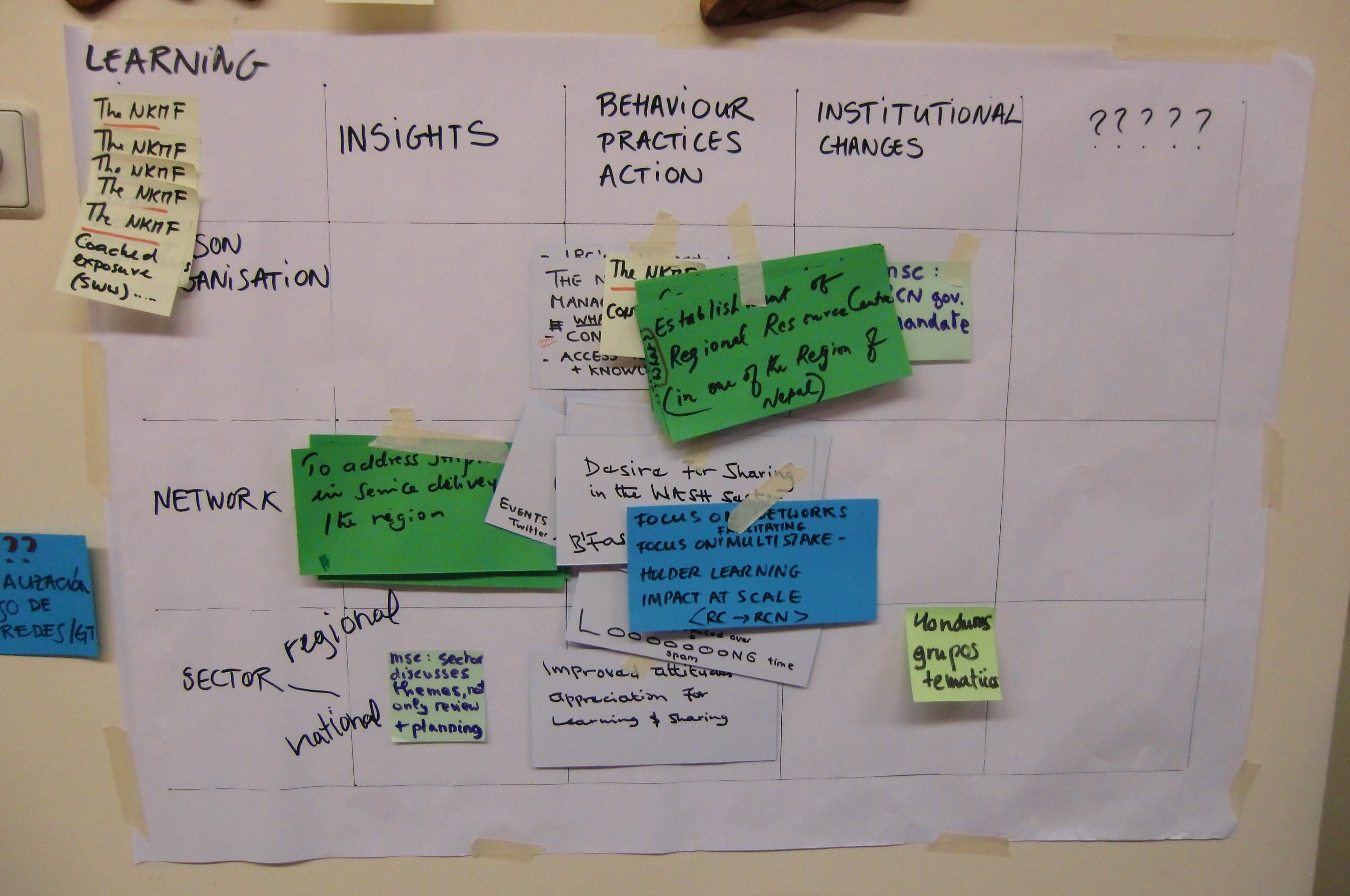Comments on Day 2 of the RMA workshop.
Published on: 07/04/2011
On this second day of the workshop we left aside our visions and theories of change, for a while.
From the future, we looked back at the past, from doing future backwards we proceeded to visiting the past forward. On this second morning we indeed interviewed each other to hear about some significant changes or achievements we noticed as part of the resource centre work for sector learning over the last two or so years. We were tasked to map these changes on a matrix that displays personal, organisational, network and sector level (y), and insights, behaviour changes and actions, institutional changes (x).
This type of appreciative inquiry has been very useful to chart the types of changes we’ve observed in a relatively short window of time.
As can be seen on the picture here, it is also widely covered: sector learning can end up focusing on different aspects at different levels and arguably it should do so in order to affect the system (the sector) as a whole.

A mixture of interesting changes were mentioned in this session: The individual appreciation for and willingness to change; the focus on multi-stakeholder learning, going beyond organisational agenda; the establishment of district or regional (sub-national) resource centres; the development of dedicated thematic groups and meetings that go beyond structured annual planning; the mandate of working with and for the government; the shift from producing slow and heavy reports really late to having process documentation and social reporting on the spot via blogs, YouTube, Twitter and the likes; and finally, the incredible confidence gained by RCN coordinators in the process; the case of Abu was mentioned: He was not working in the sector three years ago and is now mandated by sector agencies to organise the biggest WASH conference in Ghana because his own events are organised in a participatory way and leads to the best results. In the afternoon we have been exposed to a number of RMA tools: diary, timeline, eye-opener workshop, dynamic learning agendas and system analysis. Only 30 minutes per tool, a teaser, and we assessed whether it could help us in our work. These tools are of course dangerous, like any tool, because they tend to be the whistles and bells that everyone is running after, leaving other serious considerations aside. Will we be able to ensure reflection and build up our plans and work if we focus on (playing with) these tools? Then again these tools are also great, because they precisely encourage reflection; they act as personal or network diaries or take place during reflexive workshops that cement the network by building a vision or a collective story together. And they leave a mark in time for the actions of the network and its outcomes. And on top of them, we can align these tools with existing plans. That was actually the next and last session on this second day.
A short feedback round showed that everyone seemed keen to use the timeline. On the side I’m thinking this might even be a great idea to include in a larger conference – the way we did it in the 2008 annual event of KM4Dev. All in all, for us participants this day has been both a day of (more) passive lecturing – hearing about RMA and its tools – and a day of active personal work, when we interviewed each other and reflected back on how these new ideas could prove handy for our work.
We now have half a day left to finalise our plans, tie the coordination knots and prepare the immediate next steps.But there’s no pressure or fear, for we have learnt that time is not an enemy, it is just another tool...
(By Ewen)
At IRC we have strong opinions and we value honest and frank discussion, so you won't be surprised to hear that not all the opinions on this site represent our official policy.